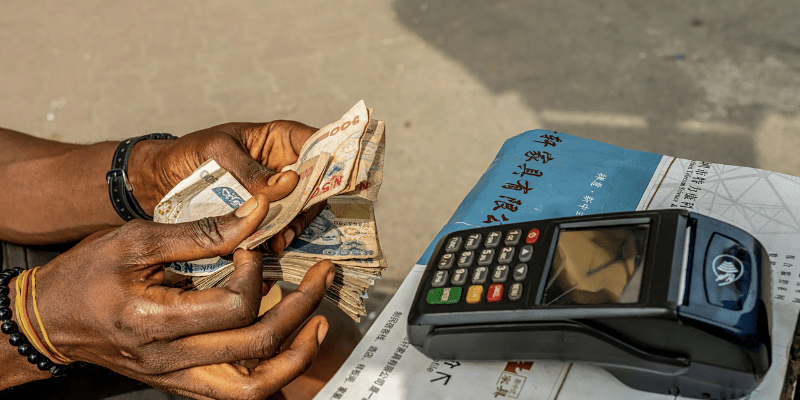Nigerians Struggle with Cash Scarcity as ATMs Fail to Dispense Money
As the year 2025 kicks off, many Nigerians are facing increasing frustrations due to a shortage of cash, particularly in Lagos where Automated Teller Machines (ATMs) are failing to dispense money. Customers visiting bank branches on the 31st of December were either turned away or limited to withdrawing small amounts ranging from ₦10,000 to ₦20,000, exacerbating the already dire situation.
The Central Bank of Nigeria (CBN) has warned banks of penalties for failing to keep their ATMs operational. Despite this, the scarcity persists, forcing Nigerians to rely on Point of Sales (PoS) operators who have taken advantage of the situation by raising their transaction fees.
PoS operators have significantly hiked their charges, with customers now paying as much as ₦500 to withdraw ₦5,000, a considerable increase from the usual ₦100 or ₦200 fees. Larger withdrawals incur even higher charges. This has put a strain on many Nigerians who heavily depend on cash for their daily expenses and transportation needs.
While the exact cause of the cash shortage remains unclear, experts speculate that factors such as cash hoarding prior to the festive season and CBN initiatives promoting digital payments may have contributed to the crisis.
One source from a tier-2 bank suggested that reduced cash disbursements from the CBN and lower customer deposit volumes could be contributing to the scarcity. Additionally, there have been allegations of collusion between PoS operators and banks, although many operators have refuted these claims and instead highlighted alternative methods of sourcing cash, such as partnerships with market traders and shop owners.
In September 2024, the CBN pledged to penalize banks that fail to ensure ATM availability. Governor Yemi Cardoso stressed the importance of maintaining adequate cash circulation and promised a monitoring system to enforce compliance. However, with ATMs in Lagos still running dry, there have been no reports of sanctions imposed on non-compliant banks.
The ongoing cash crunch underscores the urgent need for accountability and effective policy implementation to address the crisis and ease the financial burden on ordinary Nigerians.








